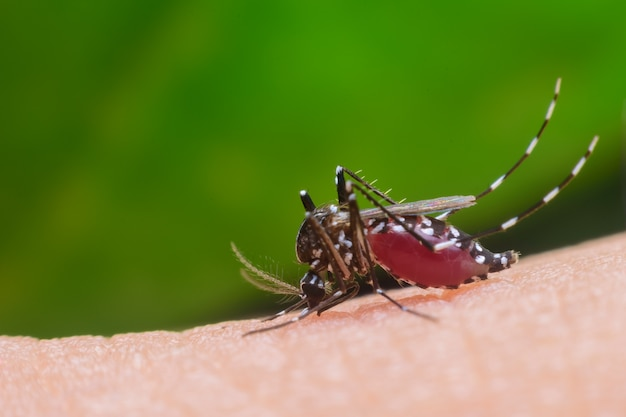False information adds to the confusion. It’s important to rely on trusted sources for correct details. This guide aims to provide clear, concise information to help stay informed and prepared. By raising awareness, we can keep the disease in check and help save lives.
Understanding Dengue: Symptoms and Early Detection
Dengue fever is caused by a virus spread by the Aedes mosquito. This tiny mosquito is the main carrier of the disease. They breed in stagnant water found in old car tires, flowerpots, and any container that collects rainwater. Understanding how the virus spreads can help in dengue prevention.
Recognizing dengue symptoms early is key to effective treatment to dengue fever. Symptoms often appear 4 to 10 days after the bite of an infected mosquito. Common signs include:
- High fever
- Severe headache
- Pain behind the eyes
- Joint and muscle pain
- Nausea and vomiting
- Rash
These dengue signs can mimic the flu, so it’s easy to overlook them initially. However, neglecting early symptoms can lead to dengue complications like severe bleeding, organ failure, and even death. Quick detection of these symptoms can significantly improve healing chances and ward off severe outcomes.
To catch dengue early, pay attention to any sudden fevers or severe headaches, especially if you’re in a region known for dengue. Always see a healthcare provider if you suspect dengue. Early medical advice can help manage the illness effectively and prevent worsening conditions.
Solutions for Dengue Treatment and Rapid Recovery
Treating dengue fever involves relieving symptoms since there is no specific antiviral treatment. One of the most common methods for dengue fever medication involves taking Paracetamol. It helps reduce fever and relieve pain. However, aspirin and non-steroidal anti-inflammatory drugs (NSAIDs) should be avoided as they can increase bleeding risk, complicating recovery.
For traditional and home-based approaches, several solutions can assist in a smoother recovery:
- Hydration: Drinking plenty of fluids is vital. It helps manage the fever and replaces lost fluids from sweating.
- Nutritional Support: Eating a balanced diet boosts the immune system, helping fight the virus.
- Papaya Leaf Extract: Some believe it can help increase platelet counts, though more research is needed.
Recovery strategies also focus on lifestyle adjustments:
- Rest is Crucial: The body needs time to heal. Get plenty of sleep to speed up recovery.
- Regular Monitoring: Keep a close eye on your health and monitor changes in symptoms.
- Light Physical Activity: As you start to feel better, gentle exercises can help regain strength.
Listening to your body is important. If you feel weaker or more ill, always seek medical advice promptly.
Boost recovery speed by: – Staying informed about what your body needs. – Adjusting your diet to include more fruits and vegetables. – Avoiding spicy or oily food that can cause further distress.
Overall, combining dengue fever medication with supportive care and a conscious lifestyle can help you or your loved ones recover effectively and comfortably.
India’s Initiatives in Combatting Dengue and Future Advancements
India faces significant challenges with dengue due to its large population and tropical climate. The government is proactive about dengue prevention. Several efforts play pivotal roles in managing outbreaks:
- Mosquito Control Campaigns: These include fumigation and eliminating stagnant water to reduce mosquito breeding.
- Public Health Education: Programs educate communities about preventing bites and recognizing early dengue symptoms.
Community involvement is also significant. People come together to lower risks, share stories, and spread awareness. Telemedicine offers a promising solution by reaching remote areas efficiently during outbreaks and providing timely advice.
In research, progress is visible. Scientists are working on potential vaccines and innovative dengue treatment methods. These advancements can transform future treatment to dengue fever, reducing dependency on conventional dengue fever medication and tablets for dengue.
Promising trails and vaccine developments offer a glimpse of hope for long-term strategies in combatting dengue. By combining government measures, community efforts, and science, India can aim for a future where dengue isn’t a perennial threat.
Globally, adopting tailored methods based on successful stories in different regions can improve overall dengue complication management. The right balance between prevention and treatment will lay the foundation for overcoming this disease comprehensively.
In conclusion, the fight against dengue requires a multi-pronged approach. With proper knowledge, diligent care, and community involvement, overcoming dengue’s challenges becomes possible. Stay informed, support initiatives, and together, we can ensure a healthier tomorrow free from the grip of dengue fever.

